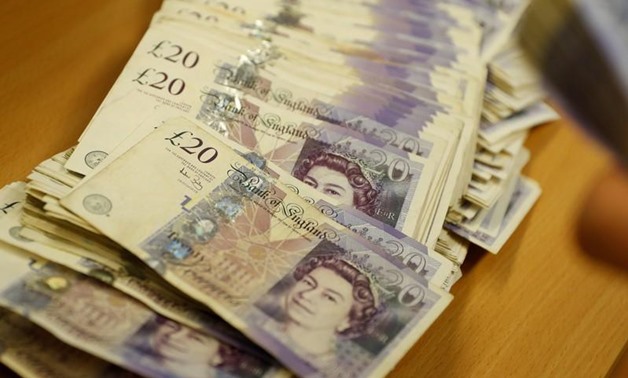
British Pound Sterling banknotes are seen at the Money Service Austria company's headquarters in Vienna, Austria, November 16, 2017. REUTERS/Leonhard Foeger
LONDON - 2 August 2018: The pound fell on Thursday before a widely anticipated interest rate increase by the Bank of England, as investors bet that no further hikes were likely before Britain leaves the EU in March.
The BoE looks set to pass a post-financial crisis milestone by finally raising interest rates above emergency levels set more than nine years ago. [nL5N1US52B]
But markets will mainly focus on comments following that decision from Bank Governor Mark Carney, especially as to whether this marks the start of a series of tightening moves.
“The balance of risks is skewed to the downside for the pound from the BoE’s policy meeting,” said Lee Hardman, a currency strategist at MUFG. “A rate hike is almost fully priced in and the BoE is unlikely to deliver a hawkish policy signal now because of softening inflation and heightened Brexit uncertainty.”
The pound fell to $1.3068, a nine-day low, and at 0815 GMT it was down 0.4 percent. Against the euro, it traded flat at 88.85 pence.
Markets are pricing in a close to 90 percent chance of a 25 basis point rate increase aimed at curbing inflation.
But sterling has fallen for three consecutive weeks against the dollar, amid worries that Britain will fail to secure a trade deal with the European Union before it exits the bloc.
London and Brussels, as well as members of Prime Minister Theresa May’s government, remain far apart on what the future trading relationship should look like.
Carney has signalled that even if Britain’s economy is growing only modestly, it risks overheating unless borrowing costs rise from their crisis-era emergency lows. But he has also stressed that all bets on where BoE rates are headed will be off, if Britain fails to get a trade deal.
Economists have challenged the need for a rate hike now, given the Brexit risks and the potential for an escalating tariff conflict between Washington and Beijing to hit the global economy.
“We continue to view even the tentative tightening embarked on since late 2017 as an unnecessary risk, and see several reasons why a hike is not justified at this point,” John Wraith, a strategist with UBS, told clients in a note.

Comments
Leave a Comment